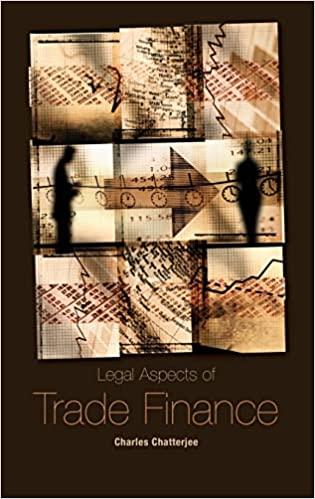Question
United States v. Alvarez The Stolen Valor Act, 18 U.S.C. 704, makes it a federal crime to lie about having received a military decoration or
United States v. Alvarez
The Stolen Valor Act, 18 U.S.C. 704, makes it a federal crime to lie about having received a military decoration or medal, punishable by up to a year in prison if the offense involved the militarys highest honors. In this case Xavier Alvarez, recently elected to the Board of Directors of the Three Valley Water District in southern California, announced to his colleagues for no apparent reason that he had been awarded the Congressional Medal of Honor and that he had been wounded during active duty as a United States Marine. In reality, Alvarez had never even served in the military. He was prosecuted and pled guilty to one count of violating the Stolen Valor Act, but reserved his right to challenge the constitutionality of the statute.
Applying that test, the Court concluded that the Stolen Valor Act is unconstitutional because the government had not shown that the statute is necessary to protect the integrity of the system of military honors. The plurality explained first that the Stolen Valor Act posed a significant and perhaps unique threat to protected speech. Contrasting the Stolen Valor Act with laws punishing false claims . . . to effect a fraud or secure moneys or other valuable considerations, the plurality noted that the Stolen Valor Act seeks to control and suppress all false statements on this one subject in almost limitless times and settings, and applies without regard to whether the lie was made for the purpose of material gain. The plurality cautioned that if the Stolen Valor Act were upheld, it would justify regulation of speech regarding an endless list of subjects.
Against those concerns, the plurality noted that the government had failed to present evidence that a criminal prohibition on speech was necessary to protect the publics esteem for military honors. It noted that the government had not provided evidence that the significance of medals had been diluted, and most importantly it argued that counter speech, i.e., publicizing lies about military honors, could address the problem.
Under todays decision, the Stolen Valor Act is unconstitutional as drafted. However, Congress could almost certainly re-enact a version of the law. In fact, an effort to do so, spearheaded by Congressman Joe Heck of Nevada, has been underway for some time. Hecks law, the Stolen Valor Act of 2011, makes it a crime to lie about serving in the military or earning a military decoration in order to obtain anything of benefit. Noting that the majority and the concurrence expressly contrasted the Stolen Valor Act with fraud statutes and other laws that prohibit lying for gain, it appears that Hecks bill would have a significantly stronger chance of surviving constitutional scrutiny.
Question: Please rephrase or summarize this in 300 words.
Step by Step Solution
There are 3 Steps involved in it
Step: 1

Get Instant Access to Expert-Tailored Solutions
See step-by-step solutions with expert insights and AI powered tools for academic success
Step: 2

Step: 3

Ace Your Homework with AI
Get the answers you need in no time with our AI-driven, step-by-step assistance
Get Started


